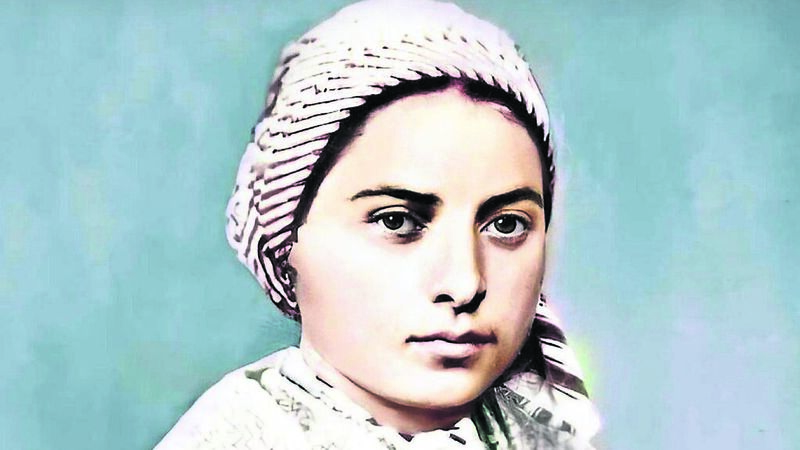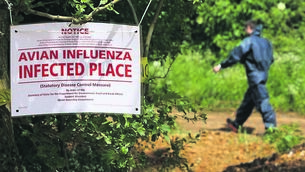An uplifting experience, being close to St Bernadette in Cork

There’s an old Irish seanfhocail, ‘Ní mar a shíltear a bhítear’ - things are not always as they seem - and no- one can deny the wisdom and truth of these few words.
For me personally, last week was a case of seeing so much evil and hate alongside so much love, hope and positivity. In no way did I see one as a counter-balance to the other.
No, evil and good exist side by side in this world of ours - truly a valley of tears but with sunshine pouring in.
Since the report on abuse of pupils in Irish schools was published 12 days ago, there has been a dam-burst of woeful personal stories flooding the media - newspapers, radio stations and on social media.
For anyone with even a splink of humanity, decency or empathy, it has been harrowing and painful to absorb. The truth must come out and should come out, and in recent days it has been pouring out.
I was never quite sure what the word cathartic meant ’til now, so I ‘looked it up’ as they say; it is defined as providing psychological relief through the open expression of strong emotions, “crying is a cathartic release”. In essence, a trouble shared is a trouble halved.
Joe Duffy and others on the national broadcaster have afforded time and space for the details of dastardly deeds to come out. It’s been the same on so many local radio stations. How often has the narrative begun with the words, ‘I’ve never told anyone about this before now…’?
The word ‘education’, I was told, many years ago, comes from the Latin ‘educere’ which means to bring forth. School in all its variations was meant to bring forth pupils and lead them on in life in a positive way through learning.
Punishment and education do not sit well together. Yes, of course, in the past corporal punishment - even capital punishment - were accepted, even allowed but that never should have meant that beatings and gross violations of young people became part of the Irish education system.
Of course, it wasn’t just Brothers and Sisters and priests that were guilty of the heinous crimes against vulnerable and largely defenceless children. Many lay teachers were equally culpable.
There might have been a tendency in the past in relation to beatings and other wrongdoings in schools to flippantly say, ‘Sure, it never did you any harm’, but in actual fact the opposite is the truth.
We have heard so many people recount their schooldays with trembling voices and truly many are scarred for life after what they endured.
We have all heard the story of the child that came home from School and told a parent they got six slaps of the stick, to which the father or mother replied: ‘You probably deserved it’, and proceeded to admonish them even more!
That came about because parents felt school was a safe environment and that all teachers were beyond reproach.
Yes indeed, these past ten days have been tough for so many, and you know, I feel great empathy with the thousands and thousands of teachers who never indulged in those evil deeds and now may feel ‘tarred with the same brush’.
Marx lived in the 1800s, at a time when opium was legal in many countries - the thinking was that it was going to be a great benefit to mankind from a medicinal point of view. The opposite turned out to be the case.
Marx, in his ‘opium statement’, went on to describe religion as “the heart of a heartless world and the soul of our soulless condition”. Even he knew and understood the importance of our heart and soul. They are bound up in religion and faith, and didn’t Mahatma Gandhi say “God has no religion”?
In 1866, 22-year-old Bernadette Soubirous left the town of Lourdes for the last time. Eight years previously, as an uneducated and sickly little girl, she had witnessed amazing happenings. She had repeatedly seen ‘a lady’ in a rocky grotto near a wet, waste piece of ground frequented mainly by pigs and goats.
Bernadette entered the Convent of Nevers, hundreds of miles from her native Lourdes. She suffered extreme pain from both chronic asthma and in later life tuberculosis of her lungs and bones. She suffered in silence and died at the age of just 35.
She must have had serious questions to ask - ‘Why me?’ and ‘Why was I chosen to see Our Lady?’ - and then her ‘reward’ in this life was pain and suffering? Truly, her faith must have been tested, but as Martin Luther King said: “Faith is the first step, even when you don’t see the staircase” - not an easy concept to grasp but the little girl from Lourdes understood.
In 1925, the body of Bernadette was exhumed and examined as part of the Church’s process of declaring her Blessed. Her body was found to be uncorrupted, in other words, not decayed 46 years after her death.
It was decided to take some bones from her body and these became the relics of St Bernadette, which are in Ireland at present.
Being close to a physical part of a special person, a Saint, is an amazing moment. In the time of Christ we are told people flocked around him trying to touch ‘even the hem of his garment’. Could you compare it with the more modern phenomenon of crowds attending pop and rock concerts - all with the hands outstretched to try and touch their idol?
I have been to Lourdes many times and walked the cobbled streets once walked by young Bernadette, so last Sunday and Monday were so very special. The relics of Bernadette were in Mallow on Sunday and Midleton on Monday and thousands flocked to venerate them.
They are kept in what is known as a reliquary. People came and queued just to stand there and offer praise to a special person - a simple peasant girl and Saint.
On Monday morning in Midleton, Fr John Ryan mentioned in his homily the late Aine Byrne and her belief in the ‘three F’s of Lourdes - Faith, Friendship and Fun’ - and truly we experienced those over the two special days.
Venerating the relics of St Bernadette was a special experience, and God knows, and we all know, that truly we need uplifting moments every now and then.







 App?
App?




